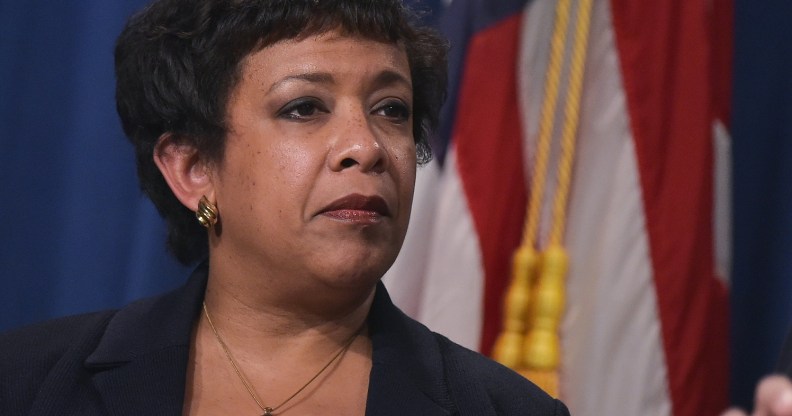US Attorney General: Transgender rights are about fundamental fairness

US Attorney General Loretta Lynch has said that she considers transgender rights a crucial part of anti-discrimination laws.
A wave of Republican-backed ‘bathroom bills’ have spread across the US aimed at rolling back LGBT rights protections – ostensibly to stop transgender people from using their preferred bathroom.
The laws, many of which expand well beyond simply the bathroom issue and directly attack anti-discrimination protections, have been backed by a string of senior Republicans including Ted Cruz.
Speaking to Buzzfeed, Loretta Lynch – who was appointed as Obama’s Attorney General last year – explained why the Justice Department affirmed that existing sex discrimination laws also cover gender identity.
She said: “To me, this is really an issue of equality and fundamental fairness and what kind of a society do we want to be.
“We decided over 200 years ago that we wanted to be an inclusive society, and we wanted to guarantee equal rights for all.
“For that to mean something, we have to be careful, we have to be vigilant, so that when people, for whatever reason, are either [made to] feel like they’re on the outside — a particular group — or are placed on the outside, that that doesn’t happen.
“And transgender issues are no different, to me, in that regard.
“Our transgender family members and friends are also incredibly vulnerable to discrimination, in terms of the laws that we see, but also to abuse.”
She added: “This to me is all a part of the whole: If we’re going to have the view that we’re going to protect everyone in this society equally, we have to mean it.”
The Attorney General also added that the Justice Department would consider whether discrimination based on sexual orientation is also covered under existing civil rights laws.
She said: “We’re looking at that issue, also, and we’ll definitely come to a conclusion soon as to what position to take.
“But I think that overall, the position — on a whole host of issues — should always be toward inclusion and equality.”

